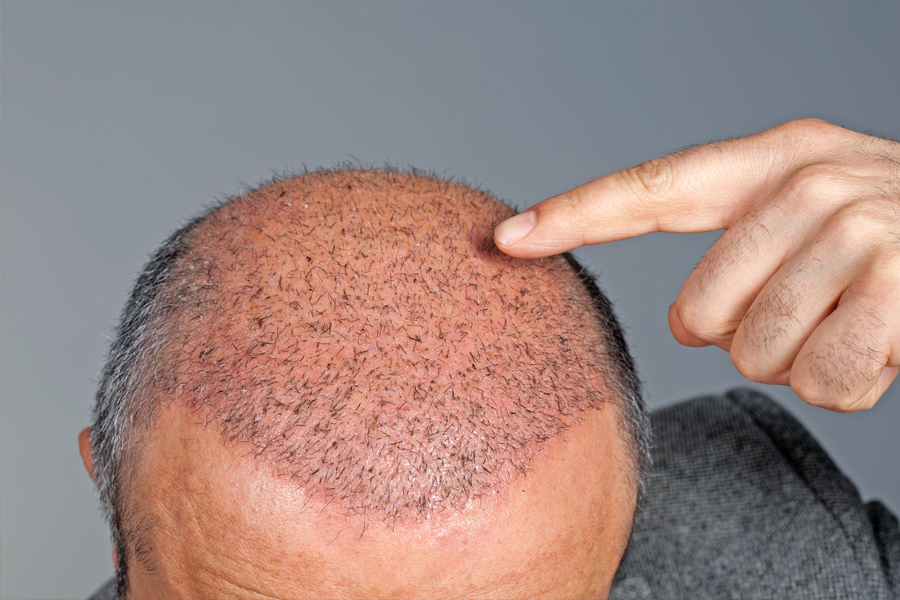What is TRT?
Testosterone Replacement Therapy (TRT) is a medical treatment designed to restore testosterone levels in individuals with low testosterone. This therapy can be administered in various forms, such as injections, patches, or gels. TRT aims to bring testosterone levels back to normal, thereby alleviating symptoms associated with low testosterone.
How TRT Works
TRT works by supplementing the body’s natural testosterone production. The therapy involves regular administration of testosterone, which can be done through different methods. The most common forms of TRT include:
Injections:
Administered directly into the muscle.
Patches:
Applied to the skin and worn throughout the day.
Gels:
Applied to the skin and absorbed into the bloodstream.
Each method has its own set of advantages and considerations, and the choice of method depends on the individual’s needs and medical advice.
Common Uses of TRT
TRT is commonly used to treat conditions that result from low testosterone levels. These conditions include:
1. Hypogonadism:
A condition where the body doesn’t produce enough testosterone.
2. Delayed puberty:
In adolescents who experience delayed onset of puberty.
3. Certain chronic illnesses:
Such as HIV/AIDS, which can lead to low testosterone levels.
By addressing these conditions, TRT helps improve the overall quality of life for individuals suffering from low testosterone levels.
The Role of Testosterone in Mental Health
Testosterone is a key hormone that influences various aspects of mental health. It plays a crucial role in regulating mood and stress responses. Low levels of testosterone have been linked to mood disorders, cognitive decline, and increased anxiety. Correcting low testosterone levels has been associated with reduced anxiety and improved overall mental well-being.
Scientific Studies Linking TRT to Mental Health
Key Research Findings
Numerous scientific studies have explored the connection between Testosterone Replacement Therapy (TRT) and mental health. Research indicates that testosterone has a mood–regulating effect, which can be particularly beneficial for men with low baseline testosterone levels. These studies suggest that TRT may help alleviate symptoms of depression and anxiety, offering a potential treatment avenue for those struggling with these conditions.
Case Studies
Several case studies have documented the positive impact of TRT on mental health. For instance, men who underwent TRT reported significant improvements in their overall mood and cognitive function. These real-life experiences provide valuable insights into how TRT can be an effective treatment for men with low testosterone levels, offering numerous benefits such as increased energy and improved mental clarity.
Expert Opinions
Experts in the field of endocrinology and psychiatry have weighed in on the potential mental health benefits of TRT. Many agree that while more research is needed, the existing evidence is promising. They highlight the importance of individualized treatment plans and caution against the overuse of TRT without proper medical supervision. Overall, the expert consensus is that TRT can be a valuable tool in managing mental health issues related to low testosterone levels.
Potential Mental Health Benefits of TRT
Testosterone Replacement Therapy (TRT) has been linked to several potential mental health benefits. These benefits can significantly improve the quality of life for individuals undergoing the therapy.
Improvement in Depression Symptoms
Many individuals report a noticeable improvement in depression symptoms after starting TRT. This is particularly relevant for those who have not responded well to traditional antidepressants. The short-term benefits of TRT, such as increased energy and mental sharpness, can contribute to an overall better mood.
Enhanced Cognitive Abilities
TRT has been shown to enhance cognitive abilities in some individuals. This includes improvements in memory, attention, and problem-solving skills. These cognitive benefits can be particularly valuable for older adults experiencing age-related cognitive decline.
Reduction in Anxiety Levels
Another significant mental health benefit of TRT is the reduction in anxiety levels. Many users report feeling calmer and more in control of their emotions. This can lead to a more stable and fulfilling life, free from the constant worry and stress that anxiety can bring.
Risks and Considerations
When considering Testosterone Replacement Therapy (TRT), it is crucial to be aware of the potential risks and considerations. Possible side effects can vary from person to person and may include acne, sleep apnea, and an increase in red blood cell counts. Additionally, there is an increased risk of prostate cancer that should be carefully monitored during TRT.
Possible Side Effects
TRT can lead to a range of side effects, some of which may be mild while others could be more severe. Common side effects include:
- Acne and oily skin
- Sleep apnea
- Increased red blood cell counts
- Breast enlargement
- Testicular shrinkage
Who Should Avoid TRT?
Certain individuals should avoid TRT due to pre-existing health conditions or potential complications. These include:
1. Men with breast or prostate cancer
2. Those with severe urinary tract issues
3. Individuals with untreated sleep apnea
4. Men with high red blood cell counts
5. Those with heart disease or a history of heart attacks
Long-term Implications
The long-term implications of TRT are still being studied, but some potential concerns have been identified. These include:
- Cardiovascular issues
- Liver toxicity
- Fertility problems
- Psychological effects such as mood swings and aggression
It is essential for individuals considering TRT to discuss these risks with their healthcare provider to make an informed decision.
Personal Stories and Testimonials
Real-life Experiences
In our patient testimonials, individuals have shared their TRT journey and how it has impacted their mental health. One patient noted, “My TRT journey resulted in my exploration as to why I was experiencing symptoms of anxiety, low mood, and what I perceived to be low-grade depression. It felt like a revelation when I started to see improvements.” These stories provide valuable insights into the real-world effects of TRT on mental well-being.
Challenges and Successes
Patients have faced various challenges during their TRT journey, including initial skepticism and adjusting to the treatment. However, many have also reported significant successes, such as improved mood and cognitive function. For instance, one patient mentioned, “The initial phase was tough, but the improvements in my mental health were worth it.” These testimonials highlight both the difficulties and the triumphs experienced by those undergoing TRT.
Advice from TRT Users
Advice from those who have undergone TRT can be invaluable for new patients. Common recommendations include:
1. Consult a healthcare professional before starting TRT.
2. Be patient and give the treatment time to work.
3. Monitor your mental health closely and report any changes to your doctor.
4. Join support groups to share experiences and gain insights.
These pieces of advice can help new patients navigate their TRT journey more effectively.


